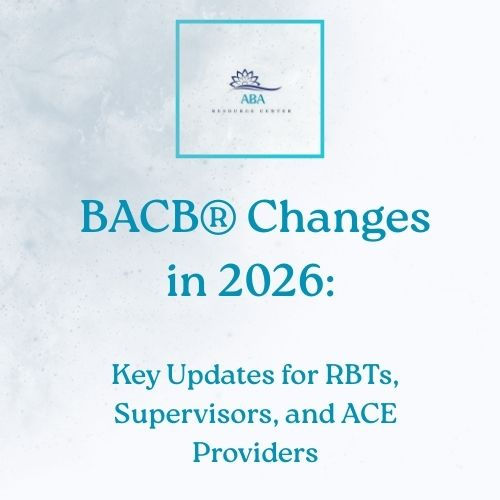Using Digital Stimuli to Streamline ABA Assessments
- Ashleigh Evans (BCBA)
- Sep 21, 2025
- 5 min read

A comprehensive assessment of a learner is the starting point for quality, individualized care in ABA therapy. But completing an assessment within a limited time frame, as is often the case in insurance-funded ABA, is a challenge.
Digital stimuli can streamline the ABA assessment process, enabling clinicians to complete assessments and submit treatment plans sooner, promoting more timely care. In this article, we explore the challenges of traditional assessments, how digital stimuli address them, and how tools like FirstWork’s DTT stimuli app can simplify workflows for BCBAs.
Challenges of Using Traditional Stimuli in ABA Assessments
ABA assessments are necessary to understand a learner’s skill strengths, needs, goals, and interests. But traditional approaches that rely on printed materials, physical manipulatives, and bulky assessment books come with significant drawbacks:
Preparation Time: Printing, cutting, laminating, and sorting materials can take hours.
Cost: Creating or purchasing ABA stimuli quickly adds up.
Administering Time: Scrambling through boxes of picture cards and flipping through assessment books slows down the process. Time is of the essence during an assessment, as most funders only authorize 8-10 hours in total.
Storage and Organization: Physical stimuli take up space, can get lost or damaged, and require careful organization to ensure they’re ready when needed.
These challenges slow down the process, delaying the learner’s access to care. Digital stimuli offer a solution to these and many other challenges, providing a more efficient, organized, and standardized approach to administering ABA assessment
What is Digital Stimuli?
Digital stimuli are images, videos, or other interactive materials that clinicians present through a tablet, computer, or phone app. When conducting an assessment or running programs, digital stimuli serve the same purpose as traditional stimuli, but with greater efficiency.
Benefits of Digital Stimuli in ABA
Digital stimuli bring efficiency and flexibility to ABA assessments. They offer several benefits for clinicians and ABA practices, including:
Time Savings: Digital stimuli eliminate hours of preparation. Gone are the days of finding, printing, cutting, and laminating pictures. Clinicians can focus on observing and interacting with learners instead of managing materials.
Improved Engagement: Interactive and dynamic digital stimuli often capture and maintain a learner’s attention better than picture cards.
Integrated Data Collection: Digital DTT platforms, such as FirstWork, enable real-time recording of responses, thereby eliminating human error that may occur when data is recorded after a learning session.
Easy Customization and Flexibility: Digital stimuli can be more quickly adapted to meet individual learner needs, preferences, or developmental levels.
Reduce Costs: By replacing ongoing printing, laminating, and material-purchasing expenses, digital stimuli provide a cost-effective alternative that continues to save money over time.
Accessibility: Digital stimuli go wherever your device goes, making it easy to run assessment targets from anywhere.
FirstWork: Simplifying Assessment Workflows
FirstWork was developed to take the hassle out of managing stimuli in ABA. In assessment workflows, this means clinicians can eliminate the hours they’d usually spend creating and organizing stimuli. Instead, they can instantly access the stimuli they need to assess skills across the VB-MAPP, MOTAS, ABLLS-R, and many other tools—all within one digital platform. As you assess skills, the app automatically tracks data on your learner’s responses. At the end of the session, the clinician can simply transfer this data into the assessment tool.
With FirstWork, you can access Preloaded to Stimuli Libraries. Eliminate prep time with a vast selection of ready-to-use stimuli to assess a wide range of skills, including:
Actions
Sorting
LRFFC
Sound-to-letter identification
Reading
Counting
Math
Matching
Receptive identification
Beyond its built-in libraries, FirstWork offers complete customizability. Clinicians can easily upload their own images and create new stimuli tailored to a learner’s unique needs. They can even establish specific field sizes, distractor settings, and more.
Another unique feature is the focus tool, which functions like a parental control. With this, distractions are eliminated, allowing learners to stay engaged with the presented stimuli. Clinicians can restrict access to other apps, such as YouTube or games, until they complete a predetermined number of tasks. All of this is fully customizable. Behavior analysts can choose which apps to block, how many tasks the learner needs to complete before lifting the block, and how long the learner can access the apps before returning to tasks.
Who is FirstWork for?
FirstWork can be used by anyone within ABA organizations and educational settings. Whether you’re a solo BCBA, part of a small team, or managing a large organization, FirstWork can offer tremendous value.
Reimagining ABA Assessments & Programming with Digital Tools
ABA assessments set the stage for effective, individualized treatment, but the process doesn’t have to be weighed down by hours of preparation and stimuli management. Digital stimuli apps can make assessments more efficient, accurate, and engaging, for both clinicians and learners.
Best of all, the transition from assessment to programming is seamless. Behavior analysts can share the FirstWork app with their RBTs, who continue using FirstWork’s digital stimuli to teach skills in therapy sessions. No need to prep stimuli for multiple programs while your learner waits around for therapy to begin.
FirstWork helps clinicians save valuable time and deliver high-quality care. Ready to see for yourself how FirstWork can transform your assessment and treatment workflows? Get a 7-day free trial to explore the app and experience the difference!
Frequently Asked Questions
Does FirstWork offer a free trial?
Yes, you can get a 14-day free trial to see if FirstWork is right for you and your team.
How much does FirstWork cost?
After the free trial, a team account is $19.99 per month. That gives you access for 5 people. If you're looking into FirstWork for a larger team, you can meet with them to set up an organizational account!
Can you use the FirstWork app for programming?
Yes! While we focused this article on using FirstWork for assessments, clinicians can easily transition from the assessment to programming with the FirstWork app. Your technicians will love the ease of programming without physical stimuli!
Related Articles in our ABA Assessment Series:
Partnership & Transparency Disclaimer
The content we share on ABA Resource Center is reader-supported. This means that if you click on certain links and make a purchase, we may earn a small referral fee. Rest assured, we only recommend tools, resources, and services that we genuinely believe add value to the ABA field.







Comments